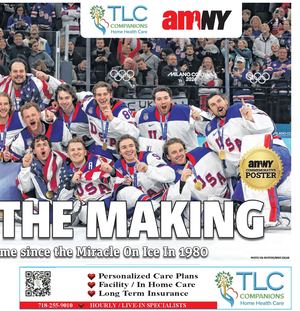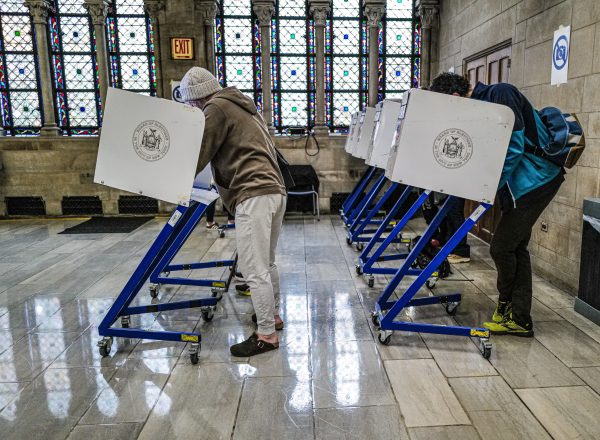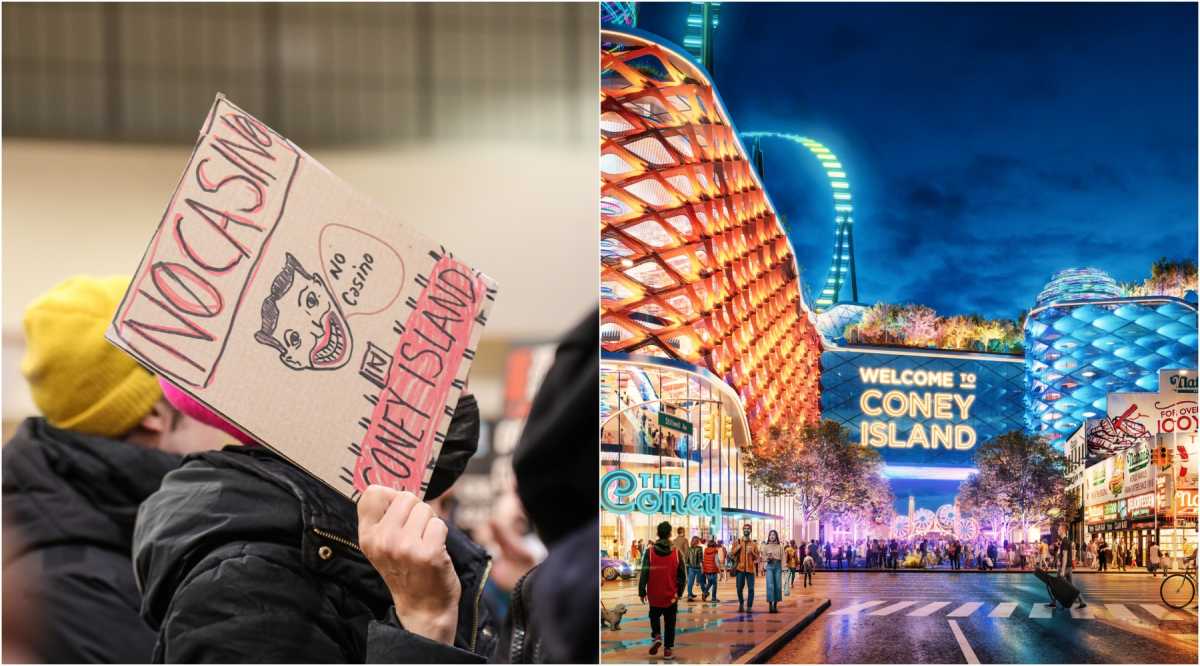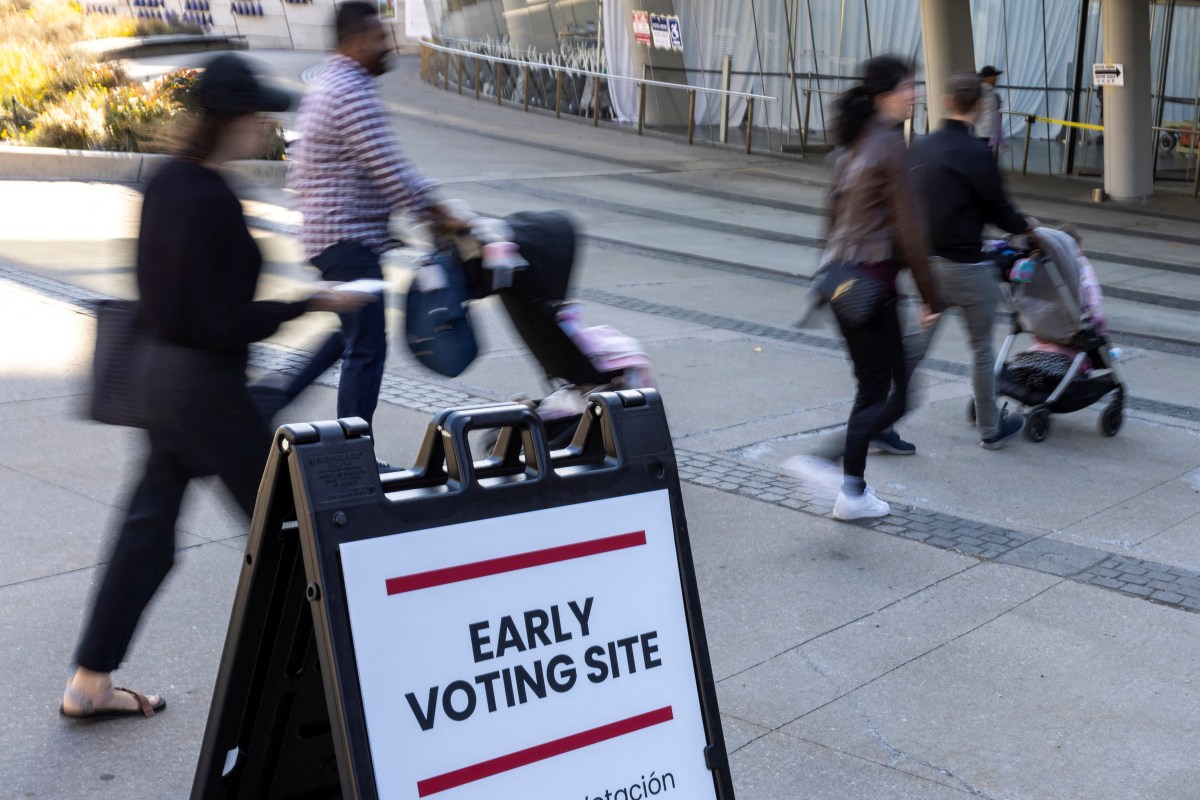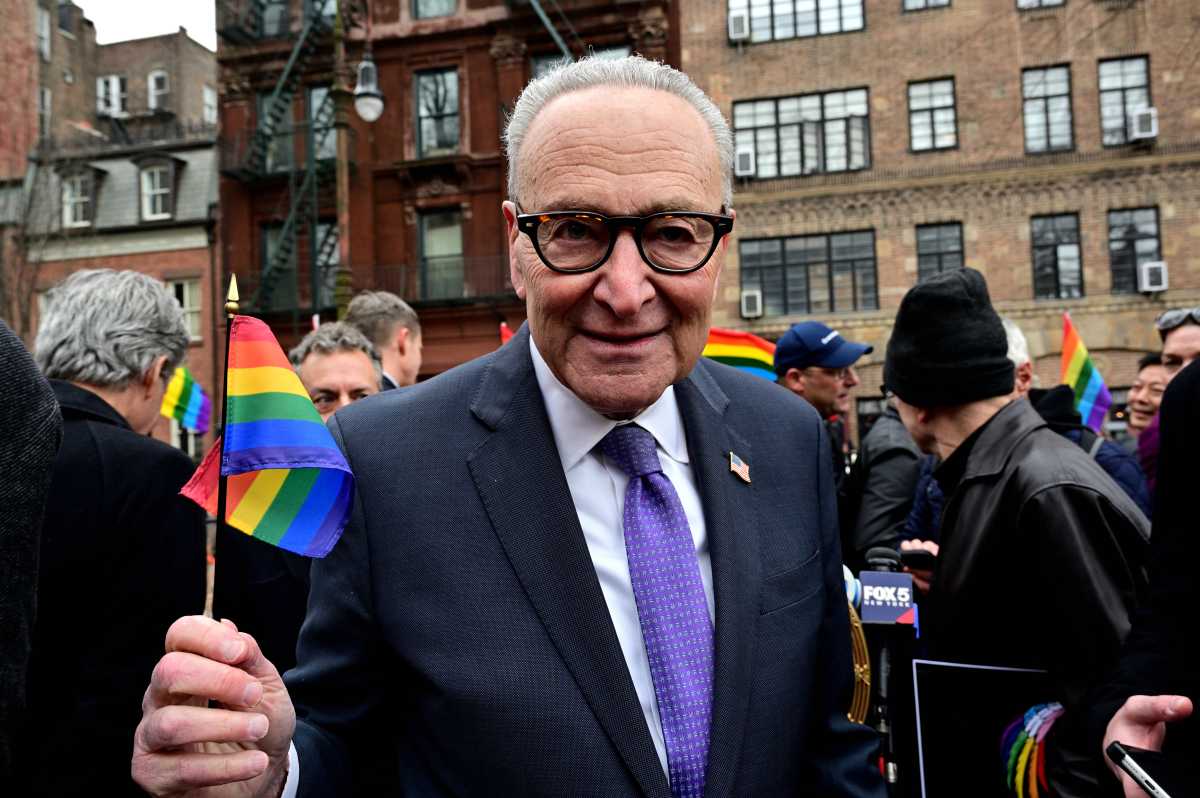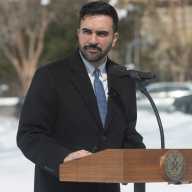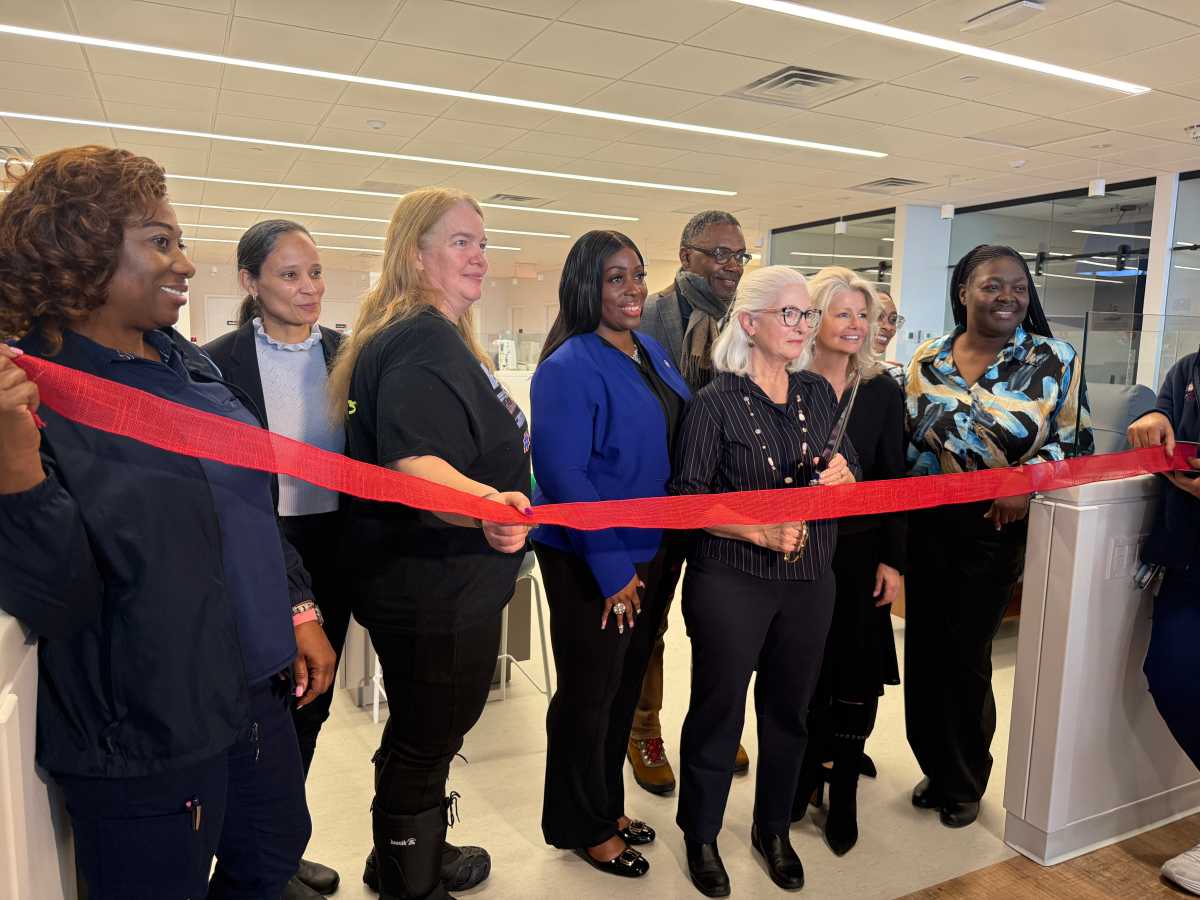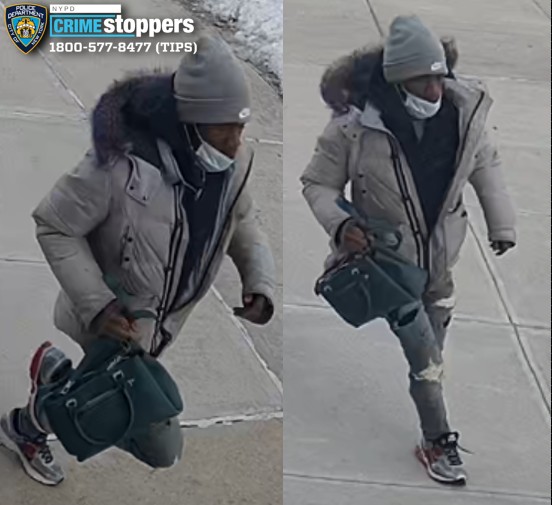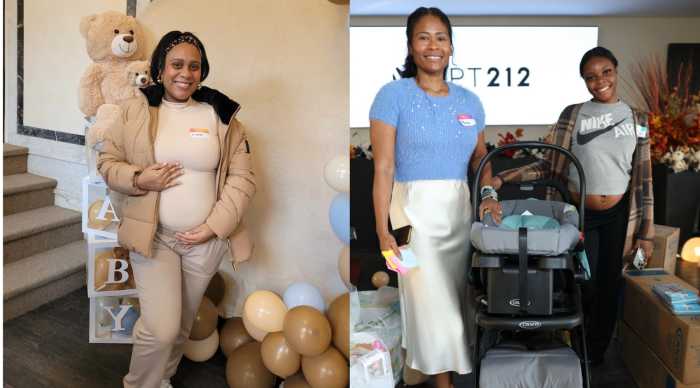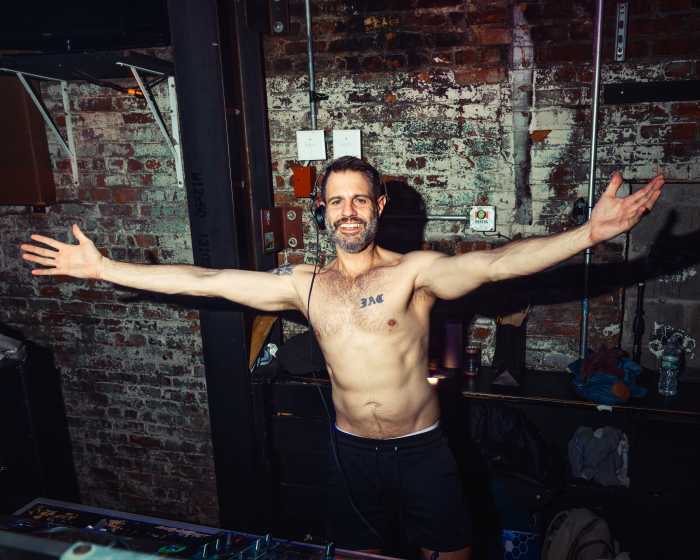New York City ballots this November will include four land-use proposals and a bid to shift municipal election years after a special panel voted to advance their suggestions Monday.
The Charter Revision Commission, empaneled by Mayor Eric Adams in December to address the city’s housing shortage, approved four ballot measures it had been considering that would amend the City Charter to streamline affordable housing projects, as well as a fifth to shift the city election to even-numbered years. New Yorkers will vote on all five proposals in November.
Richard Buery, the commission’s chair, said the proposals will help New York City address its affordability crisis.
“There’s lots of pieces to this puzzle, but we feel really good about the polls we’ve made and really looking at ways the charter can particularly help us build housing we need faster,” Buery said.
Housing development and council oversight
The first two proposals alter the city’s current process for approving new housing development by shortening and streamlining the review timeline while limiting councilmembers’ unofficial veto power over projects in their districts, known as “member deference.” The proposals specifically target areas with low affordable housing, often because their councilmembers refuse to approve affordable projects.
Under the amendment, the 12 districts with the least affordable development over five years would be put on a “fast track” review process for affordable housing.
“This will be a way to build affordable housing in parts of the city that today produce next to nothing,” said the commission’s executive director, Alec Schierenbeck.
The third proposal also amends the appeals process for affordable housing projects, replacing the mayor’s veto with a three-person board of the mayor, the speaker of the City Council and the appropriate borough president. A previous version of the ballot measure would have subjected all housing to this “appeals board,” but Buery said the commission altered their proposal to preserve more community input.
A fourth proposal would make processes more efficient with a citywide map, while a fifth would aim to increase voter turnout by aligning city elections with federal races.
The ballot measures come as the city faces an unprecedented affordability crisis, with the housing vacancy rate at a record low of 1.4% in 2023, the most recently available data.
Many councilmembers appeared at public hearings through the process to testify against the proposed land-use changes, attempting to preserve their local power by arguing the amendments would sideline community input. Buery emphasized that the proposals do not eliminate community board or councilmember input but merely shorten the timeline, which he framed as a necessary compromise to support affordable development.
Johana Pulgarin, the district manager of Brooklyn’s Community Board 1, said at a public hearing earlier this month that the proposed system would make it more difficult for community boards to influence decision-making in their districts.
“Community boards play a vital role in informing local land use plans, providing a democratic and direct voice for local communities to provide input in planning their neighborhoods,” Pulgarin said. “Eliminating or reducing this role could result in the consolidation of planning power with a handful of people, making the land use process less democratic, less informed, poorly planned and more susceptible to corruption.”
Critics of the current City Charter argue it is unable to manage a modern New York, unreasonably restricting housing development. Progressive politicians, as well as some moderate Democrats, across the country have begun to advocate for increasing development to respond to housing shortages, earning many the nickname “YIMBYs,” a play on the term “not in my backyard” (NIMBY). Annemarie Gray, executive director of the housing advocacy group Open New York, said the commission’s amendments will help address decades-old insufficiencies in New York’s housing policy by adopting a citywide perspective on development.
“These changes represent a significant shift in how New York thinks about its housing shortage,” Gray said. “Rather than fighting over individual buildings, we’re now discussing the political root causes of our housing crisis.”
Meanwhile, the election year ballot measure, which the commission advanced after input from public hearings, aims to increase turnout and decrease costs by consolidating elections. While the four land-use ballot measures would only have to pass city voters, any change to municipal election years would additionally require amending the state constitution.
Explaining the proposals
The city will conduct a public education campaign to explain the proposals in partnership with civil society and civic education organizations in the months leading up to the November election. Buery said that while the city will not explicitly advocate for the proposals, he looks forward to doing so in his individual capacity.
“The goal of the city, fundamentally, is to inform people about what the proposals are, as opposed to advocate for them one way or the other,” Buery said. “But certainly, as a citizen of New York, I’m really committed to making sure that you can understand these proposals and ultimately support them.”
“I’m excited for voters to have a chance to make their decision about what they want the city to look like,” Buery added.
The commission previously considered a sixth ballot measure that would have instituted an open primary system, where all candidates compete in the same primary open to all registered voters and the top two vote-getters advance to the general election. But the commission announced last week that it would not be advancing that proposal after pushback from both progressive and Republican advocates, who argued open primaries would effectively usher in one-party rule.
Buery said the commission’s public hearings were invaluable to their decision-making process.
“It’s been an amazing process to hear from so many New Yorkers all over the city speak with passion, with clarity about the thing that mattered to them,” Buery said.
“I’m proud of all the New Yorkers who took time out of their busy lives and schedules to come out to a random meeting room wherever we were and talk about their vision for making New York City better,” Buery added.
Also Read : https://www.amny.com/nyc-transit/nyc-carriage-horse-collapse-case-handler/
